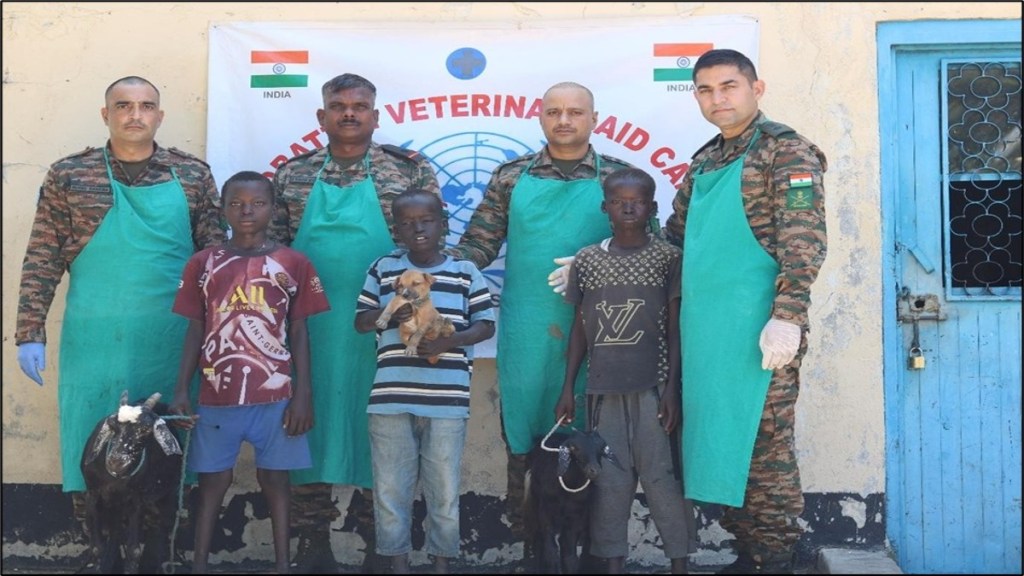Since gaining independence in 2011, South Sudan has faced ongoing ethnic tensions and violent competition over resources, severely hindering peace and development. Amidst these struggles, a unique initiative by the Indian Army, serving under the United Nations Mission in South Sudan (UNMISS), is using veterinary care to bridge divides and foster peaceful coexistence in Upper Nile State.
The Indian Battalion (INDBATT-1), deployed in South Sudan as part of the UN peacekeeping mission, has been organizing veterinary camps over the past nine months. These camps have treated nearly 15,000 cattle, a critical resource for local communities. However, their efforts extend beyond animal health—they serve as a platform for building trust and easing ethnic tensions. By addressing livestock-related challenges, these camps offer an innovative pathway to dialogue and conflict resolution.
Livestock, often central to conflicts in South Sudan, plays a significant role in both the economy and the daily lives of the population. Disputes over grazing land, water, and cattle have been major drivers of violence. INDBATT-1’s veterinary camps directly address these issues by promoting healthy livestock, which in turn enhances food security and reduces the risk of famine—a critical step toward peace in a region where survival often hinges on livestock.
According to sources in the defence and security establishment, the Indian veterinary team’s efforts are highly appreciated by the local population. Not only do they provide free animal care, but they also conduct training for Community Animal Health Workers (CAHWs). These workshops are essential in empowering locals, transferring knowledge on global best practices in animal husbandry, and ensuring the community’s long-term self-reliance. This approach fosters resilience and decreases dependency on external aid, contributing to a stable and peaceful society.
“The camps are particularly impactful in empowering women, who are often primary caregivers for livestock. By improving animal health and livelihoods, the camps contribute to gender equality and reduce gender-based violence. This empowerment is a vital component of the broader peacebuilding efforts, as stable, inclusive communities are more likely to maintain peaceful relations,” sources quoted above added.
Moreover, the camps have provided essential services to internally displaced persons (IDPs) and refugees, groups that are especially vulnerable due to the ongoing conflict. By addressing livestock health and preventing disease outbreaks, these camps help mitigate further displacement and reduce the reliance of these populations on humanitarian aid.
As South Sudan strives for lasting peace, the Indian Army’s efforts under UNMISS highlight the role of compassion in conflict zones. Their veterinary camps in Upper Nile State not only provide critical services but also serve as a beacon of hope, demonstrating that even small acts of kindness can bring communities together and create pathways to peace. Through these initiatives, INDBATT-1 has shown how addressing basic needs like animal care can be an entry point for resolving deeper ethnic and social tensions, contributing to the broader mission of sustainable peace in South Sudan.

